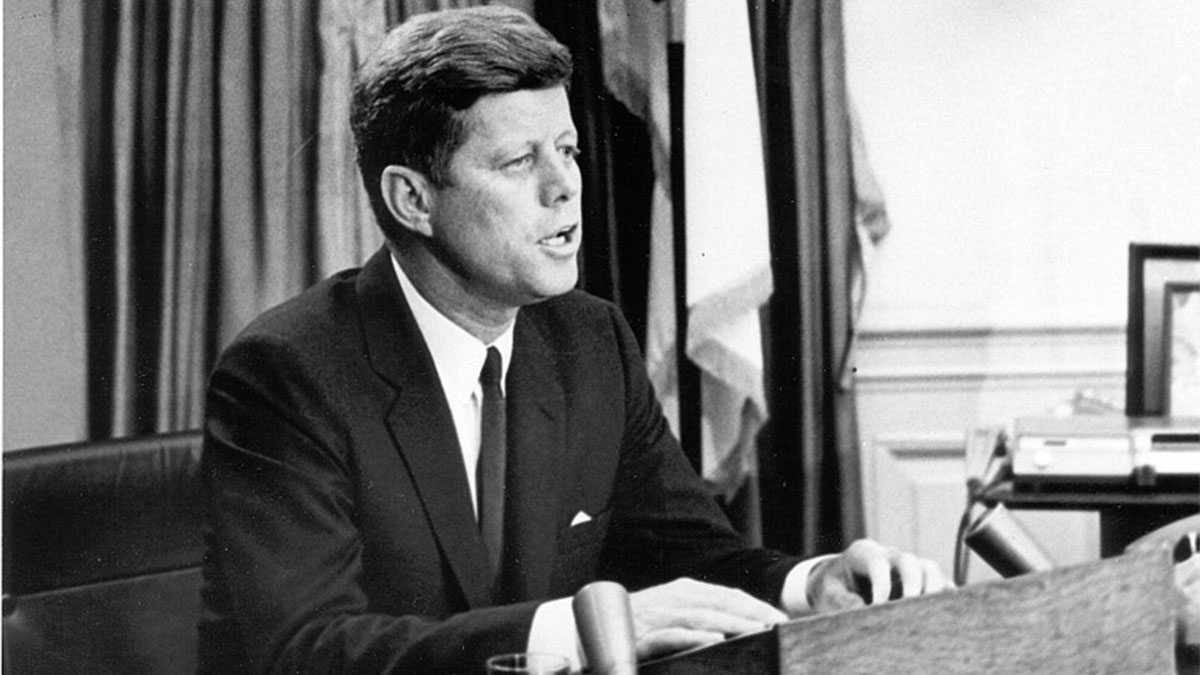
JUNE 11, 1963

In what has been called one of the most important days in civil rights history, President John F. Kennedy delivered his first civil rights speech. Hours earlier, he had seen Alabama Gov. George Wallace try to block the enrollment of two Black students at the University of Alabama, and now he felt compelled to speak out.
His senior advisers told him not to, but he remained determined to educate the nation in this moment of great urgency. His speechwriter, Ted Sorensen, finished with less than five minutes before Kennedy went on the air at 8 p.m. Eastern time. Kennedy had jotted down a few notes in case he had to speak extemporaneously.
He told those listening of the “worldwide struggle to promote and protect the rights of all who wish to be free. And when Americans are sent to Vietnam or West Berlin, we do not ask for whites only. It ought to be possible, therefore, for American students of any color to attend any public institution they select without having to be backed up by troops.”
He said every American should be able “to enjoy the privileges of being American without regard to his race or his color. In short, every American ought to have the right to be treated as he would wish to be treated, as one would wish his children to be treated. But this is not the case.”
A century of delay has “passed since President Lincoln freed the slaves, yet their heirs, their grandsons, are not fully free,” he said. “They are not yet freed from the bonds of injustice. They are not yet freed from social and economic oppression. And this Nation, for all its hopes and all its boasts, will not be fully free until all its citizens are free.”

